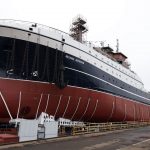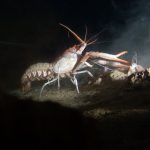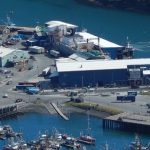Fishermen in Ibaraki prefecture, Japan’s fifth-largest seafood producer, had stopped fishing after tainted fish were detected south of Fukushima, where radioactive water from a stricken nuclear plant contaminated the sea. Nearly 96 percent of fishing off the coast of Ibaraki was suspended after sand lance contaminated with higher-than- acceptable levels of cesium were discovered.
Tomoki Mashiko, assistant director at the fishing policy division of the prefectural government, informed that fishing in Ibaraki had been suspended since the March 11 earthquake and tsunami, restarted as early as March 28, and then suspended again. Most of the big restaurants and hotels have dropped Japanese seafood from their menus as the fear of radiation rising high.
Japan exported 565,295 metric tons of marine products worth 195 billion yen ($2.3 billion) last year. A fishing industry group in Fukushima asked Tokyo Electric Power Co. to stop dumping toxic water into the sea as the operator of the damaged nuclear plant struggles to stem radiation leakage.
According to Mashiko fishermen from Ibaraki’s southern port of Hasaki weren’t allowed to ship their products to a market in neighboring Chiba prefecture. He added that the prefecture will increase monitoring of marine products for radioactivity and decide which area and what type of fish are safe for commercial operations.








